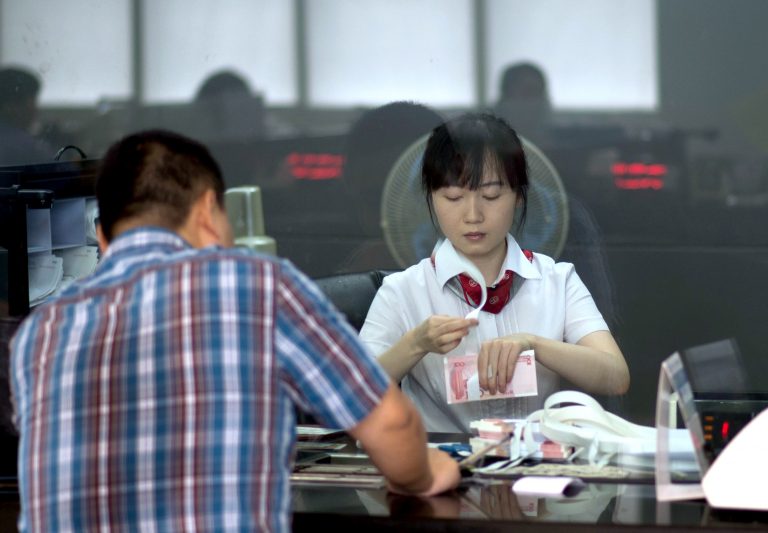China has seen pay cuts for civil servants in recent years. Since the second half of 2021, the more affluent provinces of Jiangsu, Zhejiang, Guangdong, Fujian, and the city of Shanghai have started to announce cuts as well.
Lin Ying, who works in Shenzhen, told overseas media on Jan. 27 that the government had directly informed employees that two months of their salaries had been deducted in the form of tax deductions.
“We haven’t been paid for almost three months. Officially, they said that they were deducting taxes from previous annual bonuses of 100,000 yuan or so. Withholding for one month is 16,000 yuan, and for two months it’s 30,000 yuan. It’s a pay cut in the name of tax deduction. Now it’s the end of the third month and there has been no update on our payroll situation,” Lin said.
Lin also explained that they had an annual year-end bonus that wasn’t taxable since 2018. Such bonuses were arranged by respective employers and differed in amount but were approximately the sum of two or three months’ salary.
READ MORE:
Success
You are now signed up for our newsletter
Success
Check your email to complete sign up
China’s ‘Belt and Road Initiative’ Falters as Beijing Runs Out of Funding
In 2022, Expect China’s Economy to Worsen Further
Where did the government’s revenue go?
“Most of the national treasury goes to the Belt and Road, social stability maintenance costs, military spending, and the rest is administrative costs that Chinese people use such as pensions, medical care, education, which accounts for a small portion in the overall national treasury. The structure of the entire national spending has been very clear. They don’t spend on things they should but waste on things they shouldn’t,” Lin said.
He also added that Shenzhen is the first-tier city in the country with better conditions than inland regions. If Shenzhen finds it difficult to pay its government employees, it means China’s economic situation is getting serious.
“Shenzhen is the last bastion. When Shenzhen can’t make payroll, it means the issue of local governments failing to meet payroll obligations is not a single incident but likely to be prevalent across the country.”
In December last year, a real estate blogger posted an article saying that Shenzhen was expecting to see an average pay cut of 80,000 yuan per capita. The salary level in Shenzhen is about 300,000 yuan a year which means that a reduction of 80,000 yuan would equal to about a 20 to 30 percent pay cut per year.
Furthermore, in some areas outside of the Pearl River Delta region of Guangdong Province, the government has said it will only guarantee the basic salary of civil servants. All subsidies were suspended, and previous subsidies given to undergraduates and graduate programs have also been scrapped.
Slashing public salaries
Posts from China’s social media site Weibo showed that salaries of civil servants in many jurisdictions dropped significantly.
Another post said that police officers and staff from Shanghai’s tech sectors would have their annual salaries reduced by 100,000 yuan as well. According to the post, after the pay cut, some people could no longer afford their mortgages. This Weibo account was later suspended.
Chinese Premier Li Keqiang also proposed in his May 2020 Government Work Report that governments at all levels must “live a tight life with the central government leading the way.” Data also showed that the government debt ratio in 2020 increased by 7.5 percentage points compared to the previous year.
A real estate lawyer who wished to remain anonymous told overseas media, “because of the lack of land for sale in the urban areas, the financial deficit is looming, and some jurisdictions can’t even pay the salaries of court staff. Local governments are racking their brains to find money.”
RELATED:
Premier Li Keqiang Asks Officials to Avoid ‘Bureaucratism’ as China’s Economic Crisis Worsens
Analysis: Beijing is running out of money
Financial commentator Tang Ao told the Chinese edition of The Epoch Times that the inside story of Shenzhen’s pay slash in lieu of taxes for civil servants confirms that the Chinese Communist Party (CCP) as a whole is so short on money that it has reached the point of desperation.
“Even Shenzhen, one of China’s richest local governments, has to use taxation tactics on its own employees like civil servants – indicating that the CCP is really running out of money to sustain itself.”China’s official media, Xinhua, reported on Jun. 21, 2016, that according to statistics released by authorities on May 30, 2016, as of 2015, a total of 7.167 million civil servants nationwide along with those in the institutional workforce totalled to about 50 million employees on government payroll.













